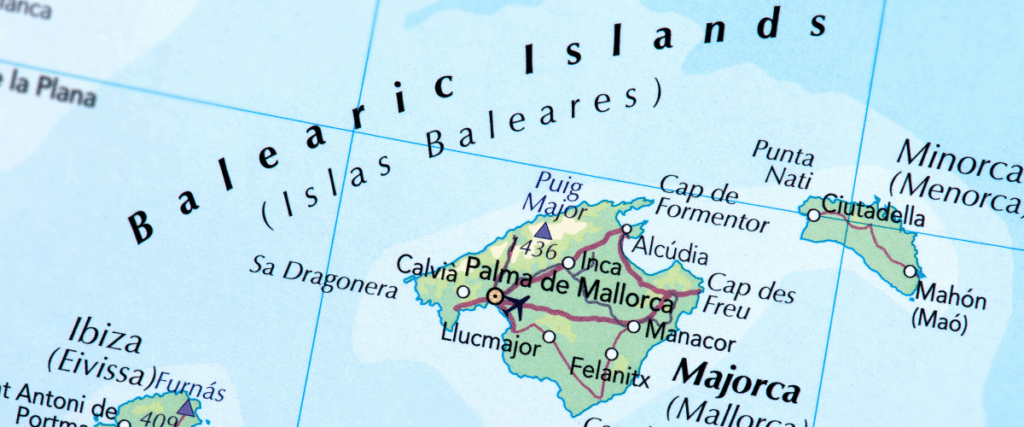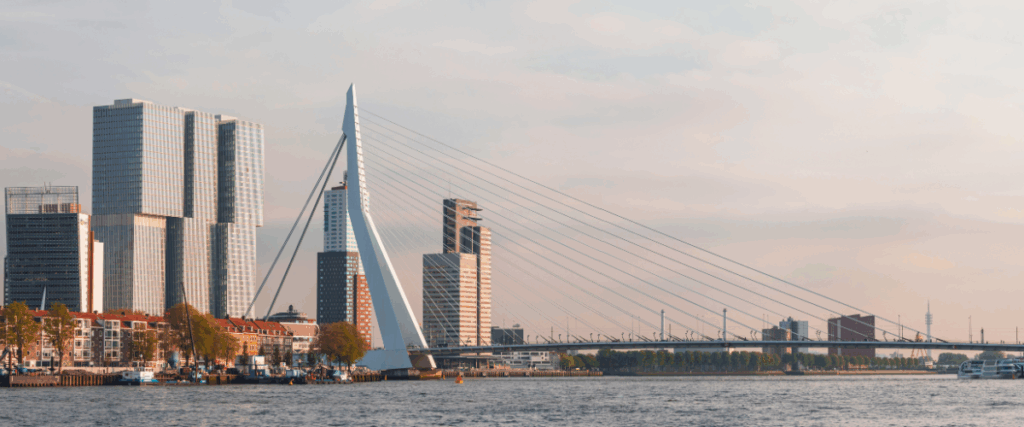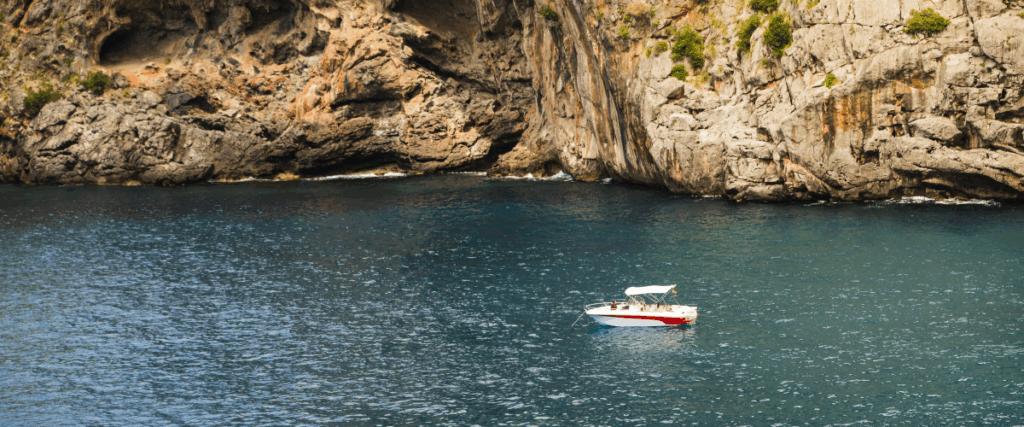Shipping to the Balearic Islands opens doors to the Mediterranean market. Doing so feels exciting yet it’s filled with choices. Whether you’re sending products to Mallorca, Menorca, Ibiza, or Formentera, it’s important to know that the logistics rhythms on each island differ. The key to this is finding the balance between speed, cost, and sustainability. In this guide, we’ll walk you through how you can transport to the Balearic Islands from the Netherlands. By the end, you are able to island hop with ease.

What are your transportation options?
The Balearic Islands can be reached by sea or air, most companies combine road or rail transport to mainland Spain and a connection with short sea shipping to complete the journey. European exporters serving retail, hospitality or industrial material choose these multi modal routes widely across the Balearics. There are several transport combinations:
1) Road and Short Sea Combination
Goods travel by truck from the Netherlands to Barcelona, then continue by vessel to the Balearic Islands. This route is ideal for time-sensitive shipments needing flexibility and door-to-door service.
- Typical transit time: 4–6 days
- Best for: Mixed or smaller loads, frequent exports
- Benefits: Fast, flexible, and reliable
- Notes: Short sea leg takes about 1–2 days, with daily ferry departures from Barcelona.
2) Rail and Short Sea Combination
Trains carry goods from the Netherlands (via Rotterdam or Moerdijk) to Barcelona or Tarragona, then to the islands by short sea vessel. This combination is highly sustainable and cost-efficient for regular or large-volume shipments.
- Typical transit time: 4–7 days
- Best for: Regular or bulk shipments
- Benefits: Predictable schedules, lower CO₂ emissions, cost-effective
- Notes: Rail connects directly with short sea routes to Palma de Mallorca, Ibiza, Menorca, and Formentera.

3) Direct Ocean Transport
For companies seeking to avoid mode transfers, direct sea shipping from the Netherlands to the Balearic Islands is possible. While slower, it simplifies operations and reduces handling risks.
- Typical transit time: 7–9 days
- Best for: Non-urgent, heavy, or consolidated shipments
- Benefits: Simplified logistics, fewer transfers, economical option
- Notes: Ideal when minimizing intermediate handling is a priority.
4) Air Freight
Although rarely chosen due to higher costs, air transport remains the quickest method for high-value or time-sensitive cargo. It’s especially useful for urgent restocking or temperature-controlled products.
- Typical transit time: Less than 1 day
- Best for: Fashion, pharmaceuticals, perishables, luxury goods
- Benefits: Fastest delivery, precise scheduling
- Notes: Limited capacity and higher rates make it suitable only for urgent or high-value shipments
What should you consider when choosing the transport type?
If your business is expanding to Mallorca, Menorca, Ibiza, or Formentera, your awareness in the process of transporting to the Balearic Islands from the Netherlands makes a big difference. Before deciding, make sure you evaluate these three main factors:
- Your logistics profile: Are you shipping regularly, seasonally, or as a one-time export? Regular routes may benefit from rail and sea, while ad-hoc loads might fit better by road.
- Paperwork and customs: Even though the Balearics belong to Spain, specific tax rules apply. Ensure that your documents including invoices, packing lists, and customs declarations (T2L) are complete.
- Budget and timing: Balance cost and delivery speed. Road and short sea combinations are often the best mix for price and reliability.

What happens once your goods arrive at the Balearic Islands?
When cargo reaches ports like Palma de Mallorca or Ibiza, local carriers handle last-mile delivery to warehouses, stores, or end clients. For perishable or time-sensitive goods, specialized transport maintains quality. Some companies also use island warehouses for short-term storage to ensure constant availability.
How can you arrange the entire process?
To simplify your logistics to the Balearics:
- Plan ahead: Align your production or inventory schedule with sailing departures.
- Partner with an experienced logistics provider: They can coordinate road, rail, and sea legs, and manage customs paperwork.
- Use tracking tools: Real-time visibility helps you monitor shipments through every stage.
Final tips for shipping to the Balearic Islands
With high demands in shipping to the Balearic Islands, make sure that you book early during the peak seasons (summer or holidays) to avoid delays. It’s also smart to combine your shipments when you aim to optimize costs especially for smaller loads and make sure to recheck with packaging and labeling as island handling involves extra transfers. Lastly, confirm your delivery conditions with local distributors before arrival to guarantee that your shipment reaches its final destination.
Frequently Asked Questions (FAQ)
| How long does transport from the Netherlands to the Balearic Islands take? Usually between 3–5 days, depending on the route and transport mode. |
| Can I send small parcels or pallets? Yes. Through LTL or groupage services, you can send single pallets without booking a full truck. |
| Is customs clearance needed? Yes, but it’s a simplified process since the Balearics are part of Spain’s customs territory with special VAT rules. |
| What’s the most eco-friendly transport option? Rail and short sea combinations are the most sustainable alternatives for regular shipments. |
Ready to ship but don’t have a partner yet?
We can help.
At Portex , we’ve supported businesses with transport to Spain and the Balearic Islands for over 20 years. Based in the Port of Rotterdam, we offer direct connections and a reliable network of island carriers. Whether you need FCL, LCL/groupage, road and ocean, or air freight from Schiphol, we manage the process end‑to‑end, from pickup to final delivery.
If you need transport to the Balearic Island or other Spanish islands from other destinations, that´s also possible.

GET IN TOUCH
REQUEST A QUOTE
